剑桥商务英语教程-unit-2-OccupationPPT课件
- 格式:ppt
- 大小:2.14 MB
- 文档页数:27
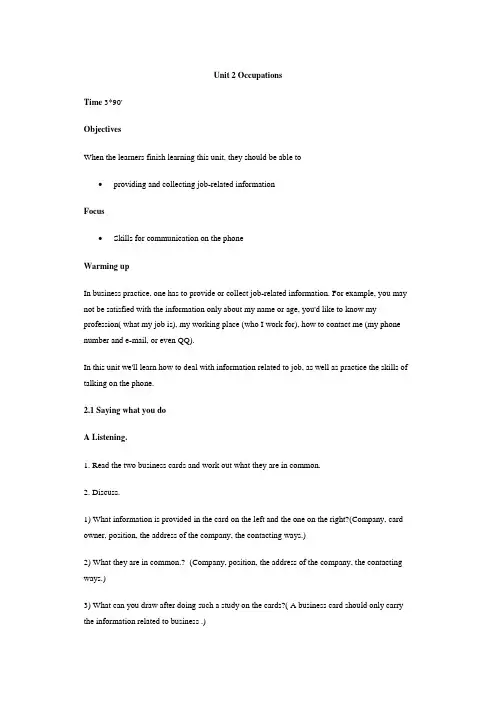
Unit 2 OccupationsTime 3*90'ObjectivesWhen the learners finish learning this unit, they should be able to∙providing and collecting job-related informationFocus∙Skills for communication on the phoneWarming upIn business practice, one has to provide or collect job-related information. For example, you may not be satisfied with the information only about my name or age, you'd like to know my profession( what my job is), my working place (who I work for), how to contact me (my phone number and e-mail, or even QQ).In this unit we'll learn how to deal with information related to job, as well as practice the skills of talking on the phone.2.1 Saying what you doA Listening.1. Read the two business cards and work out what they are in common.2. Discuss.1) What information is provided in the card on the left and the one on the right?(Company, card owner, position, the address of the company, the contacting ways.)2) What they are in common.? (Company, position, the address of the company, the contacting ways.)3) What can you draw after doing such a study on the cards?( A business card should only carry the information related to business .)3. Listen and judge who is called.Suggested answer: George BraunB . Presentation1. Work out the people's jobs in the illustration.2. Check the answer.Suggested answer: 1) receptionist/ secretary, 2) marketing manager, 3) receptionist4) secretary, 5) executive, 6) engineer, 7) supervisor3. Put the jobs in the box under correct headings.Suggested answer :4. More jobs should be provided as they are very common in international business, such as: broker , inspector, auditor, teller, programmer, and etc.5. Ask students to add more to the table.C. ListeningThis task is aimed to facilitate the familiary with the jobs.It may be a bit tough as this is the first long and fast listening piece in this course but students are to do only the numbers with jobs.Tell them this is tough and make them know well what they are to do. That makes the task easier and help the students shift their study manner from traditional courses to BEC.1.Listen twice. Then checking.Suggested answer: Production (36%), Clerical (15.5%), Administrative (7%), Professional and technical (11.5%), others (30%).2.Read the tapescript on Page 125.3.Listen to the tape without reading the typescript.2.2 TelephoningA Presentation and listening1. Listen and find:1) How many people does Fergusan talks to?2) Who does she want to talk to?2. Check the answer.Suggested answer: 1) Three, 2) George Braun.B Language focus1. Practise telephone conversation with the guiding of the flowchart.As phone calling skills are one of the basic aims in oral English course, students usually have acquired some useful expressions verbally. But they still can't do that as they lack practice. By doing D, they can see how important practice is in skills learning.2. Demonstration.C Say the Names of these companies in B.1. Ask students to find out the names on their own from any source.2. Checking:Suggested answer: JVC is Japan Victor Company, BASF is Badische Anilin andSoda-Fabrik,IBM is International Business Machines, ICI is Imperial Chemical industry, BMW is Bayerische Motoren Werke, AEG is Allegemeine Elektrizitats Gesellschaft, AT &T is American Telephone & Telegram.3. More companies: TCL, P&G, LG, GC, and etc.2.3 Finding out information about peopleA Listening1. Review what information a business card should carry.( A business card should only carry the information related to business , such as company, card owner, position, the address of the company, the contacting ways.)2. What information is missing in the cards?1) family name, 2) company's address, 3) Fax number,4) company, 5) position, 6) Telephone number, 7) E-mail address )3. Listen and work out what information is missing? The first time catch the missing information and put in on the card. The second time try to catch the way for collecting information related.Suggested answer: 1) Oliveira, 2) Rua Cachambi , 22260 -000, Rio de Janeiro , Brazil3) 55 21 394 6845, 4) Oceania , 5)Sales representative , 6) 813 3827 4848, 7) ytaka@.jpB Language focusTake down the questions employed in collecting information:By doing this task, students learn how to collect information related to job.Suggested answer:1) What's her surname?2) What's her address?3) What's her Fax number?4) Who does he work for?5) What does he do?6) What's his telephone number?7) Does he have an E-mail address?C Presentation1. Study the phone numbers.This section is aimed at training the skills with numbers.Some other numbers can be prepared as to make the practice more interesting.2. Students should be aware of the way presenting numbers:1) xxx xxx ,2) xxxx xxxx ,3) xxx xxxx,4) xxx xxxx xxxx.Sum-upIn this unit, we learn1. general jobs in business,( accountant, executive, supervisor, auditor, inspector, manager, receptionist, and etc.)2. general catalogue of jobs in business, (administrative, professional, clerical.)3. way to provide one's job information (I work for___, I work as ____, my telephone number is _________)4. way to collect one's job information (Who do you work for ? What do you do?What is your telephone number ?)5. What information should a business card carry? (Company, card owner, position, the address of the company, the contacting ways.)Assignment1. Design a business card for yourself.2. Oral practice on how to get information about one's job on phone.首页上。
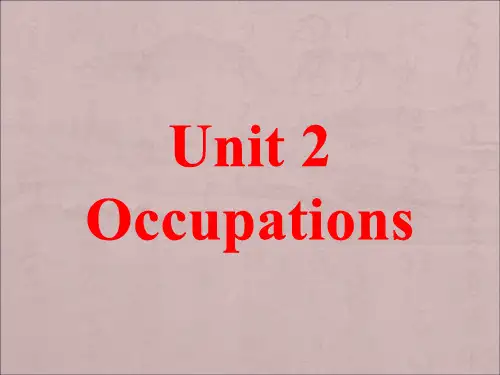
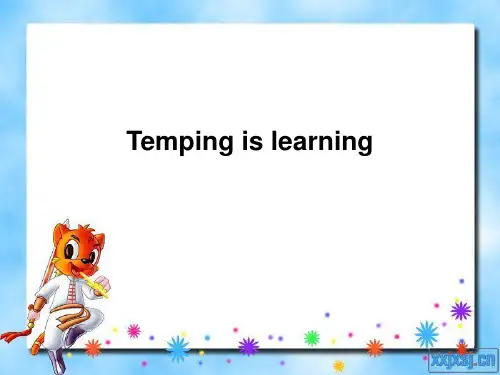

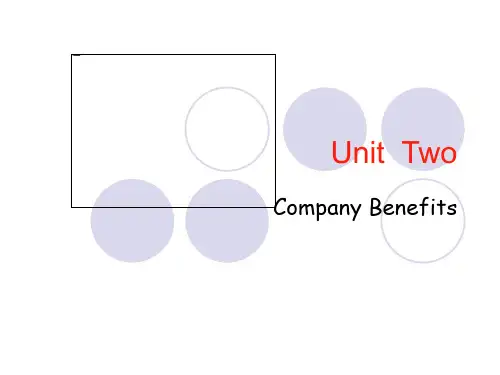
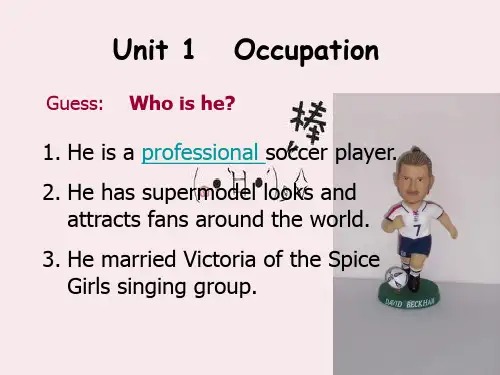
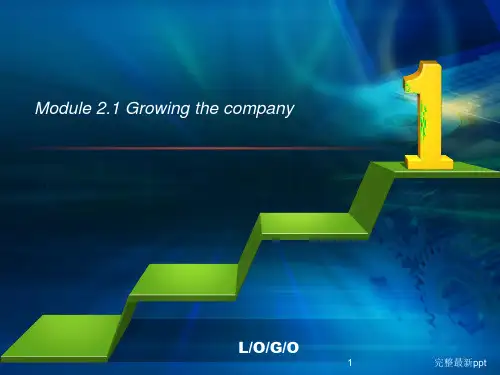
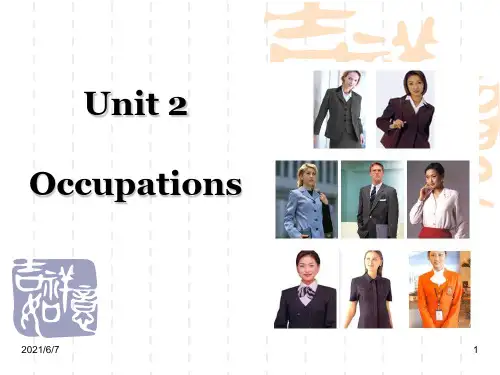
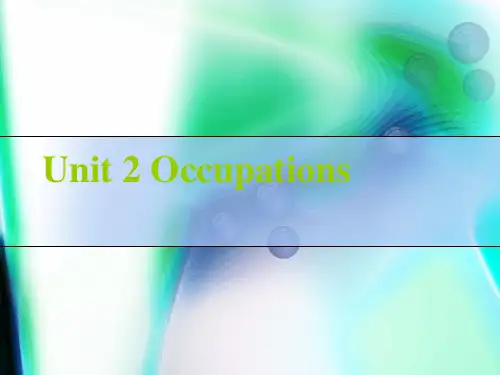

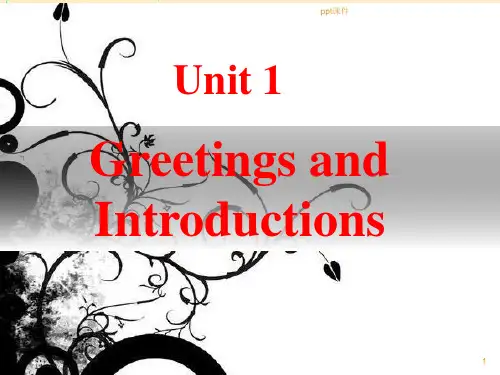
Golden Tips of Global Leaders & CEOsI’ve always found success by having happiness in my life, and this applies as much to your personal life as it does to your professional life. If you go to work everyday and you’re not enjoying it, then you’d better find another career. I feel tremendously fortunate because for many years—I’ve found happiness in both.——Don Carty, American Airline (about happiness)Unit 2 Letters, faxes and memos2.1 Communicating in writingAThe different forms of correspondence shown areFax ; airmail(航空); first class post(优先投递); handwritten lettertyped letter ; internal memo ; postcard(明信片); (on the computer screen) B:Post-It TM note(便签); magazinedo preparation : make preparationThe size of each class will be limited to 12 participants. 每个班仅限12人。
请尽量在10分钟之把话说完。
Try to limit your talk to ten minutes.start up 创办,开始从事; 误会misunderstanding ; what if 如果…将会怎么样?如果这是真的又怎么样?What if it’s true? ; how about…? (你认为)…怎么样?How about putting off the meeting? 延期开会,怎么样?ELS : English Language School ; 口试oral test ; relative merits 相对的优点…let’s say Wednesday? …咱们假定星期三怎么样?say: 假定,比如说我们假定他在撒谎。